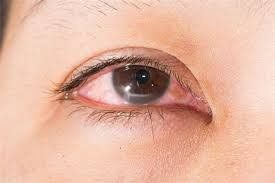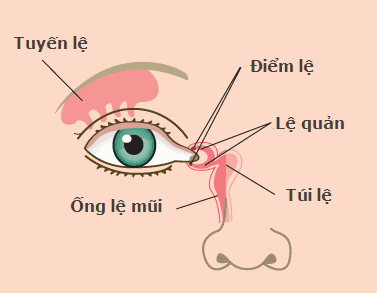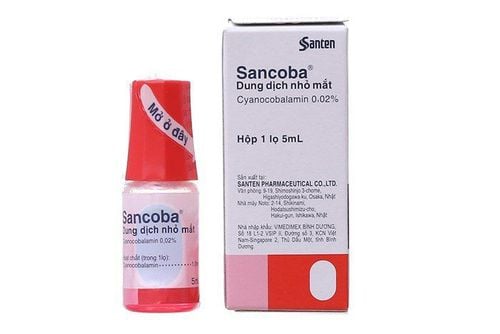This is an automatically translated article.
Diquas medicine is made in the form of eye drops, with the main ingredient being Diquafosol Sodium. It is used to treat dry eye associated with conjunctival epithelial disorders associated with tear abnormalities.
1. What are the effects of Diquas?
What does Diquas do? 1 vial of Diquas 5ml eye drops contains 150mg of Diquafosol Sodium. Diquafosol sodium stimulates the secretion of mucus and tears by acting on the P2Y2 receptor located on the conjunctival epithelium and goblet cell membrane, increasing the intracellular calcium ion concentration. Besides, Diquafosol sodium also works to improve corneal epithelial damage.
Indications for using Diquas:
Treatment of dry eyes associated with conjunctival - corneal epithelial disorders accompanied by abnormal tears. Contraindications to the use of Diquas:
Patients who are sensitive or allergic to the ingredients of the drug.
2. Usage and dosage of Diquas
How to use: Drop the solution directly into the eye. For the first use, the patient gently rotates the cap of the vial to open the Diquas vial. Then, you put drops in each eye. After instillation, you should avoid rubbing your eyes, touching your eyes with your hands, so that the medicine stays on your eyes longer and gives better results.
Dosage: Instill 1 drop/time x 6 times/day.
Overdose: In case of an emergency or overdose, the patient should call an ambulance immediately or go to the nearest hospital to be checked and treated promptly by a doctor.
Missed dose: If you forget to take a dose of Diquas, the patient should take it as soon as possible. If it is almost time for your next dose, you can skip the missed dose and take your next dose at the originally scheduled time.
3. Diquas side effects
When using Diquas eye drops, patients may experience some side effects such as:
Common: Eye irritation, eye discharge, blepharitis, conjunctival congestion, eye itching, eye pain, cold foreign body sensation in the eye, subconjunctival hemorrhage, visual discomfort, eye adhesion, dry eye, blurred vision, lacrimation, photophobia, headache, eosinophilia, increased ALT (GPT); Frequency not known: Corneal epithelial disorders (superficial keratitis, fibrous keratitis, corneal abrasion), conjunctivitis . When experiencing side effects of Diquas, the patient should stop taking the drug and notify the doctor or go to the nearest hospital for quick and timely treatment.
4. Be careful when using Diquas
Before and while using Diquas, patients should note:
Do not touch the tip of the Diquas eye drop bottle directly to the eye to avoid drug contamination; Diquas should only be used for eye drops, not in the nose, ears,...; The shelf life of the drug Diquas is within 1 month from the date of opening the cap; If Diquas eye drops are used concurrently with other eye drops, each should be used at least 5 minutes apart; The efficacy of Diquas has not been demonstrated in clinical trials in dry eye patients with Schirmer's test in the absence of anesthesia greater than 5 mm/5 min but with a tear film break time ≤ 5 s; The safety of Diquas eye drops in low birth weight infants, infants and young children has not been established; If using Diquas and experiencing transient blurred vision, patients should wait until their vision is clear before driving or operating machinery; Diquas should only be used in pregnant or suspected pregnant women if the benefits of treatment outweigh the risks. It is not known whether Diquafosol Sodium or its metabolites are excreted in human milk. Therefore, breast-feeding is not recommended if the mother is being treated with Diquas.
5. Diquas drug interactions
Drug interaction studies have not been performed with Diquas. If the patient needs to use more than one type of eye drops, they should be instilled at least 5 minutes apart. Currently, because there are no incompatibilities studies of the drug, Diquas should not be mixed with other drugs. In addition, patients should not arbitrarily use, increase or decrease the dose of Diquas without the permission of the doctor.
When taking Diquas, the patient should follow all instructions and instructions of the doctor about the use and dose of the drug. This ensures that the drug has the highest therapeutic effect and minimizes dangerous side effects.
Follow Vinmec International General Hospital website to get more health, nutrition and beauty information to protect the health of yourself and your loved ones in your family.
Please dial HOTLINE for more information or register for an appointment HERE. Download MyVinmec app to make appointments faster and to manage your bookings easily.













